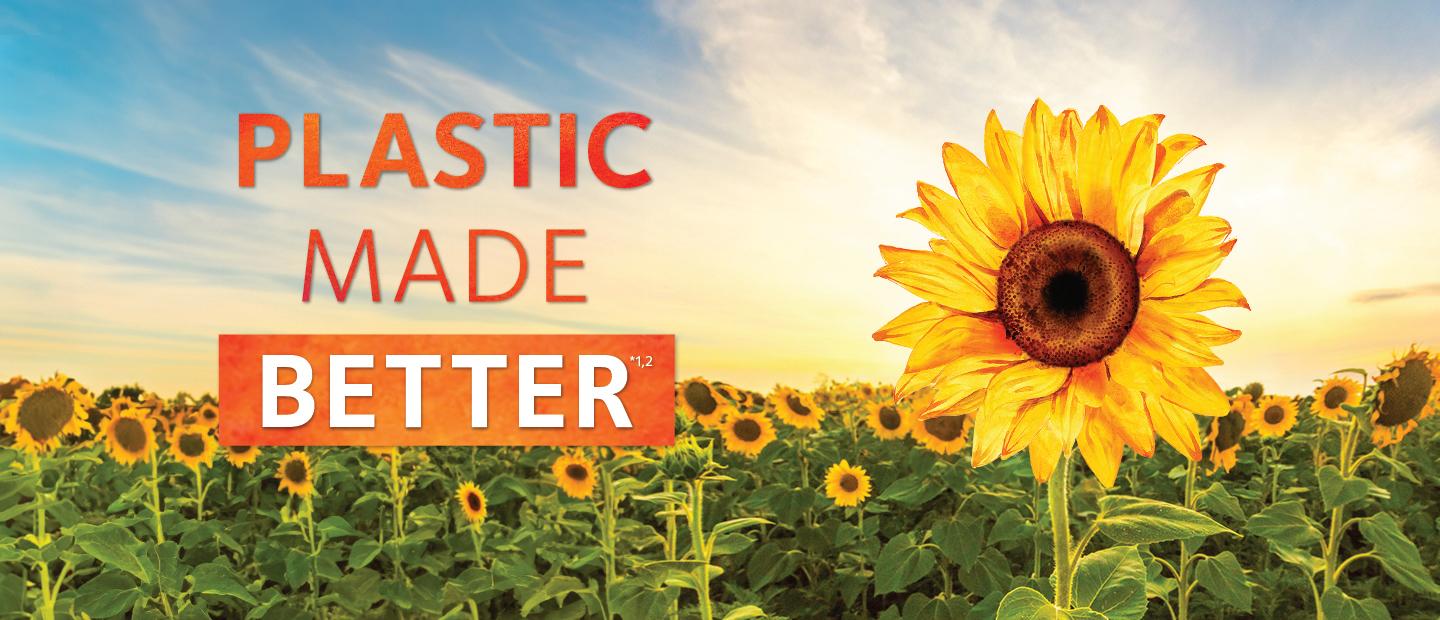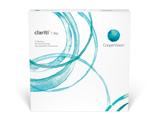You are here
PLASTIC MADE BETTER*1,2

Cutting carbon at the source with ISCC PLUS-certified plastic†‡2,3

It seems impossible to imagine everyday life without plastic, and for good reason: it is a durable, versatile, and lightweight material. But the same durability that propelled plastic to widespread popularity presents two considerable challenges that impact our environment: how it’s made and how it’s disposed of.
Through our efforts to offset and recover plastic, in partnership with Plastic Bank,§4 we’re already taking strides to tackle one of its major challenges: disposal.| We’re now taking steps to address how plastic is made, by focusing on our plastic suppliers and how the plastic we buy is produced.
So today, we’re embracing Plastic Made Better by starting to purchase ISCC PLUS-certified plastic.*‡1,2,4
Championing higher standards for plastics
ISCC PLUS certification identifies plastic production that is verifiable, traceable, and sustainable.5,6 Aligned with the United Nations’ Sustainable Development Goals, ISCC supports the reduction of greenhouse gas emissions for the greater benefit of People + Planet.7-9

Reducing greenhouse gas emissions from plastic production is no easy task. Every step plays an important role - from using verified and traceable sustainably sourced inputs, such as bio-based oils, to more efficient production techniques that minimize waste within a manufacturing facility.6,9 By beginning to purchase plastic that is ISCC PLUS-certified, we’re proud to support an international certification system that is recognized for lower carbon impact in the production of plastic.†‡2-4
ISCC PLUS certification also upholds worker's rights and promotes sustainable agriculture and land-use practices.9 And it does all this in a fully transparent manner – ensuring that ISCC PLUS-certified plastic complies with these principles every step of the way.9,10
By beginning to purchase ISCC PLUS-certified plastic, CooperVision is committed to achieving a higher standard for how plastics are made.‡4
So why should you care about Plastic Made Better?*1,2
Because how it’s made matters.
Because we all have to take that first step.
Because together with our customers and wearers, we’re working on a brighter tomorrow for People + Planet.

Explore more and see how we're taking steps towards a brighter tomorrow.
* According to peer-reviewed papers, polypropylene (PP) made using renewably sourced inputs yields a lower carbon footprint. Coopervision’s plastic supplier has found that manufacturing PP using fossil-based inputs produces 1.63 kg CO2e/kg PP whereas manufacturing ISCC-certified inputs produces -0.82 kg CO2e/kg PP.
† According to peer-reviewed papers, polypropylene (PP) made using renewably sourced inputs yields a lower carbon footprint. One of Coopervision's plastic suppliers has found through a cradle-to-gate assessment that manufacturing PP using fossil-based inputs produces 1.63 kg CO2e/kg PP whereas manufacturing PP using ISCC-certified inputs produces -0.82 kg CO2e/kg PP.
‡ ISCC PLUS: International Sustainability and Carbon Certification PLUS.
§ Plastic used in participating CooperVision soft contact lens products is determined by the weight of plastic in the blister, the lens, and the secondary package, including laminates, adhesives, and auxiliary inputs (e.g. ink). The determination does not include plastic used during the manufacturing process for both these products and their packaging.
| Through our partnership with Plastic Bank.
References:
1. CVI data on file, 2023. Cradle-to-gate assessment of our supplier’s biorenewable input
2. Narayan, R. (2011). Carbon footprint of bioplastics using biocarbon content analysis and life-cycle assessment. MRS Bulletin, 36(09), 716?721. https://doi.org/10.1557/mrs.2011.210.
3. CVI data on file, 2023. Cradle-to-gate assessment of renewable bioinput carried out by one of CooperVision's suppliers of plastic polymer.
4. CVI data on file, 2024
5. ISCC. https://www.iscc-system.org/certification/iscc-certification-schemes/iscc-plus/. Accessed Jan 25th 2024.
6. ISCC PLUS System Document (v3.3).
7. IPCC, 2022: Climate Change 2022: Mitigation of Climate Change. Contribution of Working Group III to the Sixth Assessment Report of the Intergovernmental Panel on Climate Change [P.R. Shukla, J. Skea, R. Slade, A. Al Khourdajie, R. van Diemen, D. McCollum, M. Pathak, S. Some, P. Vyas, R. Fradera, M. Belkacemi, A. Hasija, G. Lisboa, S. Luz, J. Malley, (eds.)]. Cambridge University Press, Cambridge, UK and New York, NY, USA. doi: 10.1017/9781009157926.
8. ISCC. https://www.iscc-system.org/. Accessed Jan 25th 2024.
9. ISCC. https://www.iscc-system.org/about/impact-2/sustainable-development-goals/. Accessed Jan 25th 2024.
10. ISCC. Sustainability Requirements. Version 3.1.
11. ISCC. https://www.iscc-system.org/certification/iscc-documents/iscc-audit-procedures/. Accessed Jan 25th 2024
16096





